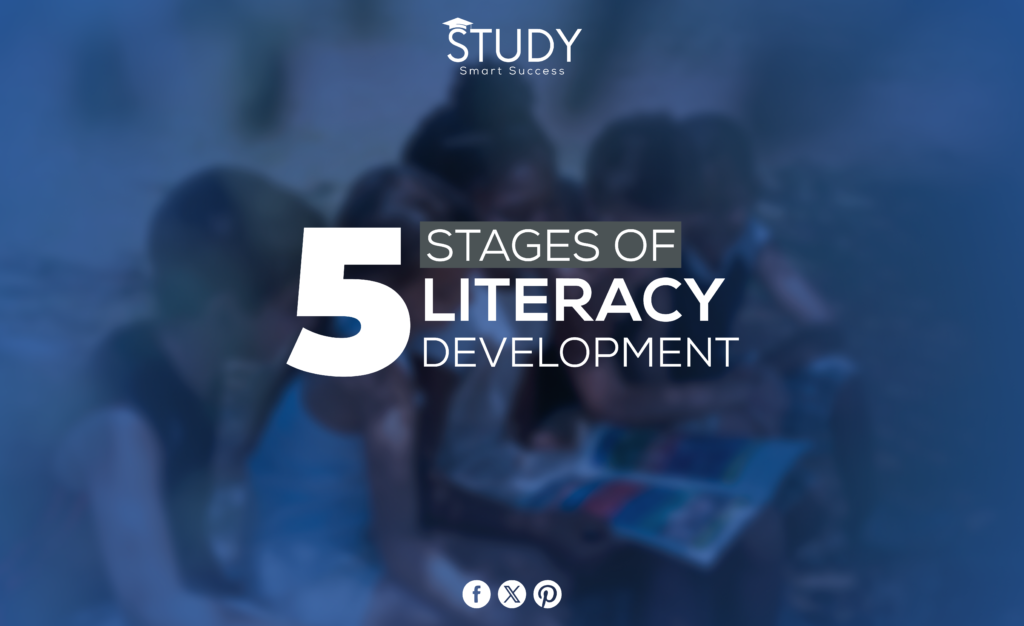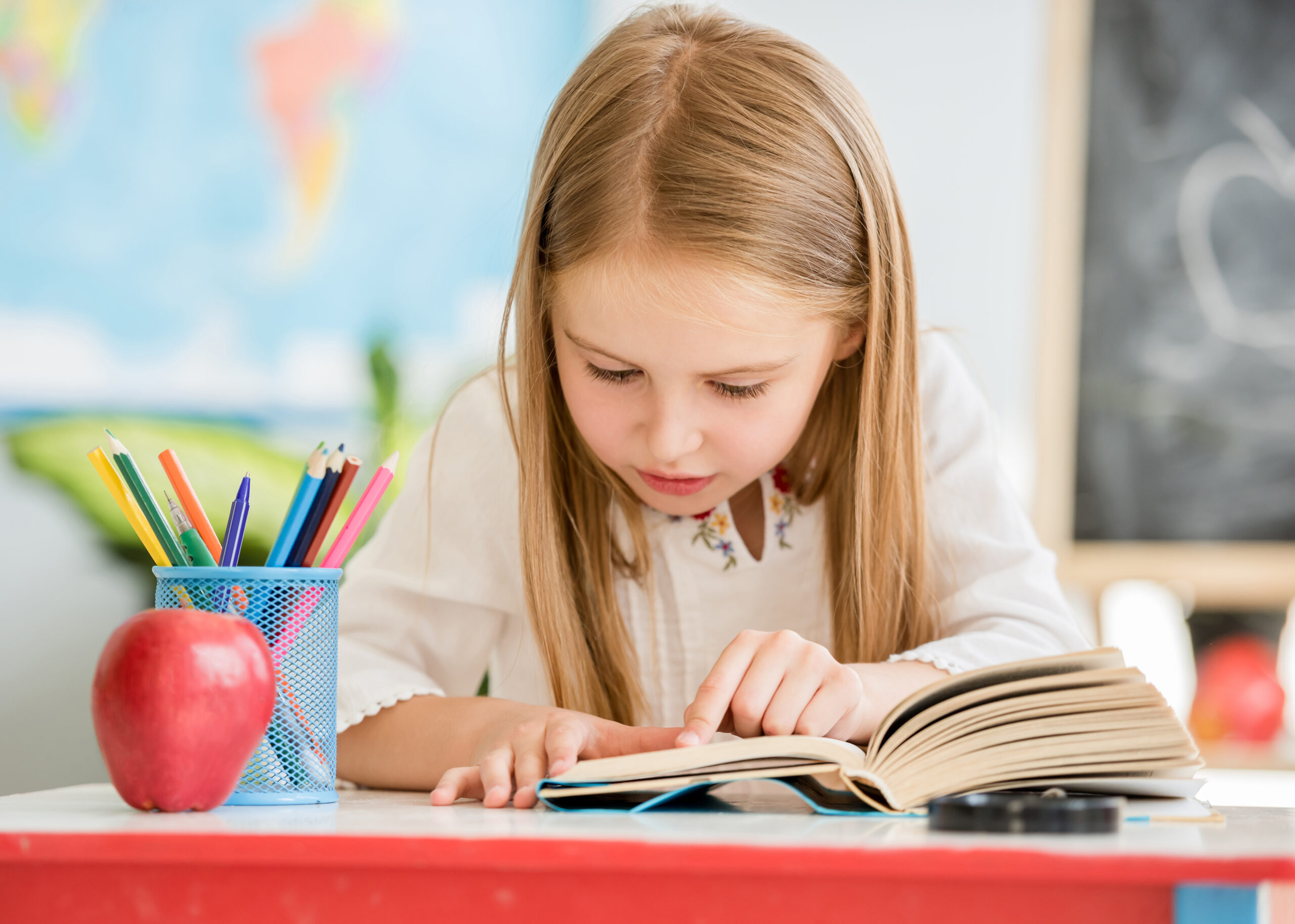Finding your way around the world of learning is a lot like figuring out how people’s minds grow. Reading and writing skills grow slowly, carefully, and beautifully, from the first babblings to the fluency of an adult discussion. At each stage of literacy development, there are important steps forward and achievements that are important for both personal and professional growth—the stages of literacy development.
Teachers, parents, and supporters who want to encourage a love of reading and writing need to know about these stages. This complete guide will walk you through the five stages of literacy development, showing you the important signs and useful tips to help literacy grow naturally.
Stage 1: Emergent Pre-Reader (Ages 0-5)
Introduction to Language
When kids are this young, they learn the basics of spoken language, the first and most important skill they will learn for reading and writing. As ideas like inflexion, pitch, and rhythm are unconsciously taken in, this time is full of wonder and discovery.
Early Language Activities
For example, pointing to pictures in books, copying sounds, and joining in with rhymes and songs are all participatory ways to use these new skills. With a focus on connection and awareness, these tasks set the stage for future reading.
Parental Role
Encouragement of talking, listening, and repeating after the child with joy builds a sense of play and importance around language, which makes the child want to talk.
The Power of Storytelling
Reading aloud isn’t the only way to use stories to teach kids about the world. People can ask questions and get their creative juices flowing in this conversation. Sharing stories can improve your language, understanding, and critical thought. This makes it easier for the seeds of reading to grow.
Creating a Literacy-rich Environment
Children like to explore and try out letters and words when various books, labels, and writing tools surround them. Literacy-rich environments make people more aware and give them many chances to use written language, even before they learn to read properly.
Stage 2: Novice Reader (Ages 6-7)
Introduction to Reading
Kids attend school regularly at this age and learn about letters, sounds, and written words. Interpreting is like breaking a code, and kids take their first careful steps into reading independently.
Phonemic Awareness Development
Phonemic awareness, or knowing how letters and sounds work together, becomes crucial. To help close the gap, there are tools like phonics-based apps and word games that show trends in writing and sound.
Building Vocabulary
A mix of direct teaching in school and learning by watching others helps kids build their language. Talking about the meanings of new words helps people understand them and use them more effectively.
Reading Fluency
The ease of beginning readers’ reading gets better as they go along. By this stage, you should be able to read lines more easily and with good expression. To gain confidence and happiness with reading aloud, practising by reading repeatedly and getting positive feedback is important.
Comprehension Strategies
For new readers, it’s important to learn how to understand what they’re reading. Kids can make guesses, ask questions, and summarise what they read with help from their teachers and parents. These tips will help you better understand and connect with the text, making your reading experience more important.
Encouragement of Independent Reading
letting kids pick out their reading materials based on what interests them can excite them about reading and make them love it more. Different types of books should be available, like comic novels, eBooks, and paper books, so that people with different reading skills and tastes can find what they want.
Integration with Writing
Kids can strengthen the link between reading and writing by being encouraged to write stories, notebook notes, or emails. Writing tasks make kids more creative, help them spell better, and improve their general reading by getting them involved in learning the language.
Stage 3: Developing Reader (Ages 8-9)
Fluency and Comprehension
The main goal of this growth stage is to improve reading fluency, which means working on speed, correctness, and prosody, which refers to the flow and sound of speaking. The objective is to have skilled readers who combine their reading skills with a deep comprehension of the text.
Silent Reading and Independent Practice
As students get better at quiet reading, they can improve their ability to understand what they read without the distractions of reading out loud. Setting aside time daily to read and practise independently for growth is important.
Text Structure Awareness
Beyond words, kids understand how different texts are put together, like stories, directions, and facts. They realise content isn’t just about words, language, and form.
Expanding Reading Material
Students are to realise various types of books, not just stories. They should include non-fiction, poems, diaries, and other books. This growth not only helps them learn more but also exposes them to various writing styles and points of view, which helps them gain a more complete understanding of language and its uses.
Engaging in Peer Discussions
At this point, book clubs and group talks are very helpful because they allow kids to say what they think, feel, and make sense of the books they’ve read. By exposing students to different points of view and encouraging them to explain their ideas fully, this social part of reading development improves their ability to understand what they read and fosters critical thought.
Incorporation of Multimedia Resources
Adding digital tools like teaching movies, podcasts, and interactive e-books can improve the reading experience and make it more interesting for kids still learning to read. These tools can help students with various learning styles. They can help them understand better by giving them more information about what they are reading and showing or hearing about ideas they have already learned.
Critical Thinking and Analysis
Along with understanding books, kids are taught how to think critically about them. For this, you have to look at the characters, find the themes and stories, and figure out what the author was trying to say and why. These abilities are important for advanced reading and writing and prepare students for more difficult reading and writing assignments later in their schooling.
Stage 4: Proficient Reader (Ages 10-13)
Complex Reading Skills
A good reader cannot just decode or understand; they can also evaluate and guess what will happen next by looking at the larger picture. They think critically and make links between texts because they see writing as a part of a bigger world of ideas.
Diverse Vocabulary and Styles
By the middle of your h, reading various books has built a large vocabulary. Reading aloud and discussing books can help you understand the different writing styles and forms.
Independent Projects and Assessments
Students learn to read and think for themselves by participating in reading projects and setting personal reading goals. Assessments help teachers adapt their lessons to meet each student’s needs, ensuring that all students continue growing.
Development of Analytical Skills
Students hone their analytical skills at this stage, engaging with texts on a deeper level. They learn to dissect plots, explore character development, and understand underlying themes and messages. This critical analysis fosters a deeper appreciation of literature and enhances their comprehension abilities.
Integration of Technology in Learning
Technology isn’t just used for reading and improving the learning process. Students can interact with texts, discover new books to read and connect with other readers worldwide through digital platforms, online libraries, and educational apps.
Emotional and Ethical Engagement
Many students are asked to think about how writing makes them feel and what moral issues it raises. Emotional intelligence and a wider view of the world can be gained by talking about moral problems, connecting with people, and thinking about how things work in different cultural settings.
Preparation for Advanced Literary Studies
The learners are exposed to more difficult works and ideas that set the stage for more advanced literary studies. This includes reading classics, new books, and various types to prepare them for reading and analysing at the high school level.
Personalizanalyzingg Pathways
Professors focus on personalised reading paths, fascinating and conpersonalisedbies, and problems. This personalisedpersonaliseds students interested and driven, which helps them love reading for a long time.
Stage 5: Accomplpersonalised (Ages 14+)
Literacy as Exploration
As readers reach teens, they stop learning new skills and start using reading as a way to explore and think about themselves. As they age, they develop their reading tastes and improve at expressing their feelings about books.
Analysing Texts In-Depth
Readers who are good at analysing now look at texts critically and figure out what the author was trying to say and the main ideas. They improve as writers and can now convey their points more clearly and convincingly.
Lifelong Literacy Practice
The last step is to commit to a life of learning. Reading isn’t just a single thing people do anymore; it’s a way to get to a bigger world of ideas and conversations. Literacy should be an ongoing goal, so encouraging a variety of reading materials and the search for new tasks is helpful.
Intellectual Curiosity and Exploration
At this level, readers who are good at what they do have an intense intellectual interest. They are interested in books that make them think, ask questions, and want to learn more. This desire to learn goes beyond the classroom and into personal areas of interest, which promotes learning and study on one’s own.
Engagement with Multimodal Texts
Using different types of texts, like digital media, visual stories, and engaging stories, is becoming more important. Not only do skilled readers understand what standard texts mean, but they also interact critically with material in various forms, knowing how to handle the subtleties and difficulties of each.
Global Literature and Perspectives
Reading books from around the world helps experienced readers learn more about different societies, experiences, and points of view. Students learn more about how human experiences are linked and how rich global stories are by reading worldwide books, poems, and non-fiction.
Critical Media Literacy
Skilled viewers learn how to evaluate the credibility of sources, comprehend media bias, and recognise how the media affects public opinion. This recogniser is important for finding your way around the huge amount of recognition online, making smart choices, and participating in social and political discussions in a responsible way.
Collaborative Learning and Discussion
Setting up places for students to work together to learn and talk about books and texts helps them gain greater thoughts and complete knowledge of the material. Whether in person or online, discussion groups are places where people can share their thoughts, argue about how things should be understood, and improve their critical and logical thinking.
Creative and Expressive Writing
As students get more involved with texts, they also try to improve their artistic and passionate writing. Writing classes, creative writing tasks, and chances to have published work to try different types of writing, voices, and styles help them develop their unique literary voice.
Ethical Reflections and Social Justice
Literature often shows us what’s wrong with society and makes us think about what’s right and wrong. Skilled readers are interested in books that question social rules and motivate people to take action. Literature studies and discussions can help people understand social justice problems, develop empathy, and become more motivated to make a difference.
Mentorship and Community Involvement
Often, older students act as teachers and help younger readers with their reading experiences. Reading programmes, community libraries, and projects bringers of all ages to help them feel like they are part of a community. They also help people share their love of reading.
People who are already good readers can improve their skills and help build a society ready for today’s challenges by developing these other subjects and activities.
Conclusion
A person’s level of literacy development is a k to their progresskeyin school and life. Every stage needs to be seen, praised and helped. With this knowledge, teachers and parents can help each kid find their way through the world of reading, creating an atmosphere full of language and a love of learning. Every child can confidently and excitedly move on to the next stage if they are aware of it and take action, along with getting the right tools and support.



